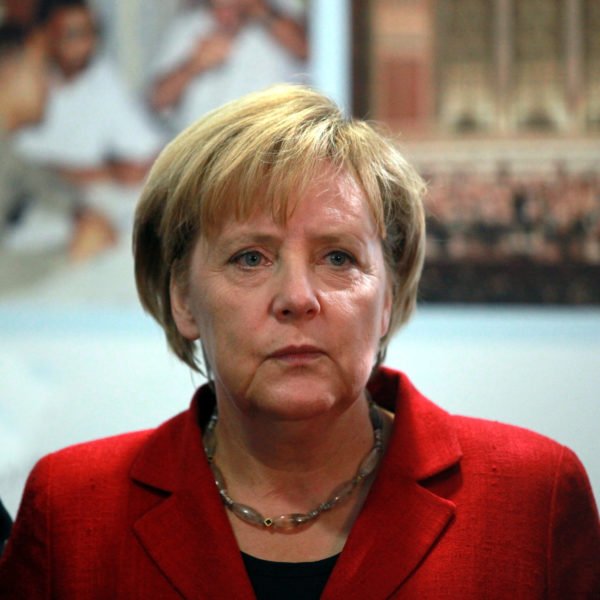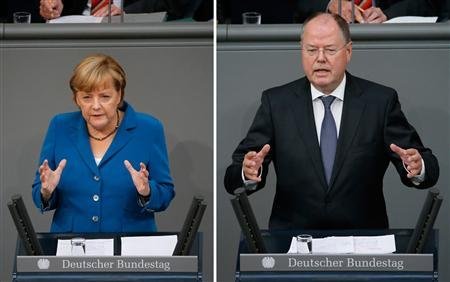Germany Elections 2017: Angela Merkel Re-Elected as Chancellor
Angela Merkel has been re-elected for a fourth term as Germany chancellor while nationalists have made a historic breakthrough in federal elections, exit polls suggest.
According to local reports, support for her conservative CDU/CSU alliance has dwindled, but the bloc will remain the largest in the parliament.
CDU/CSU’s current coalition partner, the social democratic SPD, says it will go into opposition following big losses.
The nationalist AfD is on track to become the third party.
The AfD’s performance, better than forecast in opinion polls, means the right-wing, anti-Islam party will have seats in the Bundestag for the first time.
Dozens of protesters have gathered outside the AfD’s headquarters in Berlin, some with placards saying “Refugees are welcome”.
While Angela Merkel’s alliance has remained the largest party, the numbers, if confirmed, are the worst result for the alliance between the Christian Democrat (CDU) and the Christian Social Union (CSU) under the chancellor’s leadership.
Addressing supporters, Angela Merkel, who has been in the job for 12 years, said she had hoped for a “better result”.
She added that she would listen to the “concerns, worries and anxieties” of voters of the Alternative for Germany (AfD) in order to win them back.
Angela Merkel to Run for Fourth Term in Office
Donald Trump Makes Wiretapping Jibe in Joint Press Conference with Angela Merkel
Berlin Elections 2016: Angela Merkel Admits Refugee Policy Mistakes
Angela Merkel also said her government would have to deal with economic and security issues as well as addressing the root causes of migration – one of the main reasons behind the AfD’s result.
The chancellor is being punished for opening Germany’s door to almost 900,000 undocumented refugees and migrants.
The exit polls suggest the Social Democrats (SPD), led by Martin Schulz, have fallen to a new post-World War Two low. He said the result meant the end of the “grand coalition” with Angela Merkel’s alliance.
“It’s a difficult and bitter day for social democrats in Germany,” Martin Schulz told supporters.
“We haven’t reached our objective.”
With the possibility of an alliance with the SPD rejected, Angela Merkel’s options are narrow, and the process of forming a new coalition could take months.
The projections suggest that six parties will be in the German parliament for the first time since World War Two.
The most likely scenario is of a “Jamaica” coalition, so-called because of the colors of Jamaica’s flag. It includes the black CDU/CSU, the yellow, business-friendly Free Democrats (FDP) – who are returning to parliament after a four-year hiatus – and the Greens.
It is not a marriage made in heaven, as the Greens want to phase out 20 coal-fired power plants and the FDP disagree, but it is the only formation that would guarantee enough seats in the new Bundestag, German broadcaster ZDF says.
All parties have rejected working with the AfD.
The AfD has capitalized on a backlash against Angela Merkel’s policy towards migrants and refugees, many of them from war-torn, mainly Muslim countries like Syria.
The party’s program is heavily anti-immigrant, and particularly anti-Islam. It called for a ban on minarets and considered Islam incompatible with German culture.
Additionally, several of the AfD’s candidates have been linked to far-right remarks.
Prominent AfD figure Frauke Petry said on Twitter that Germany had experienced an incomparable “political earthquake”.


